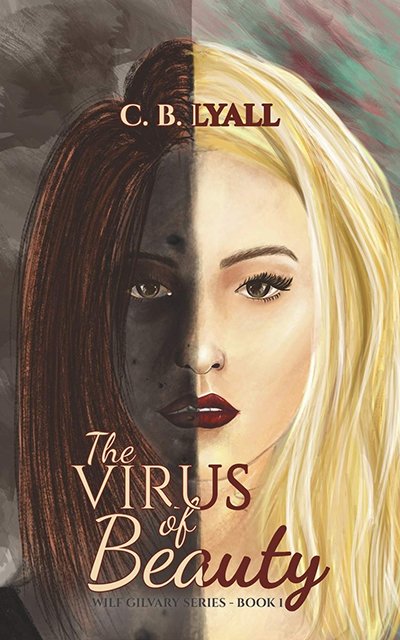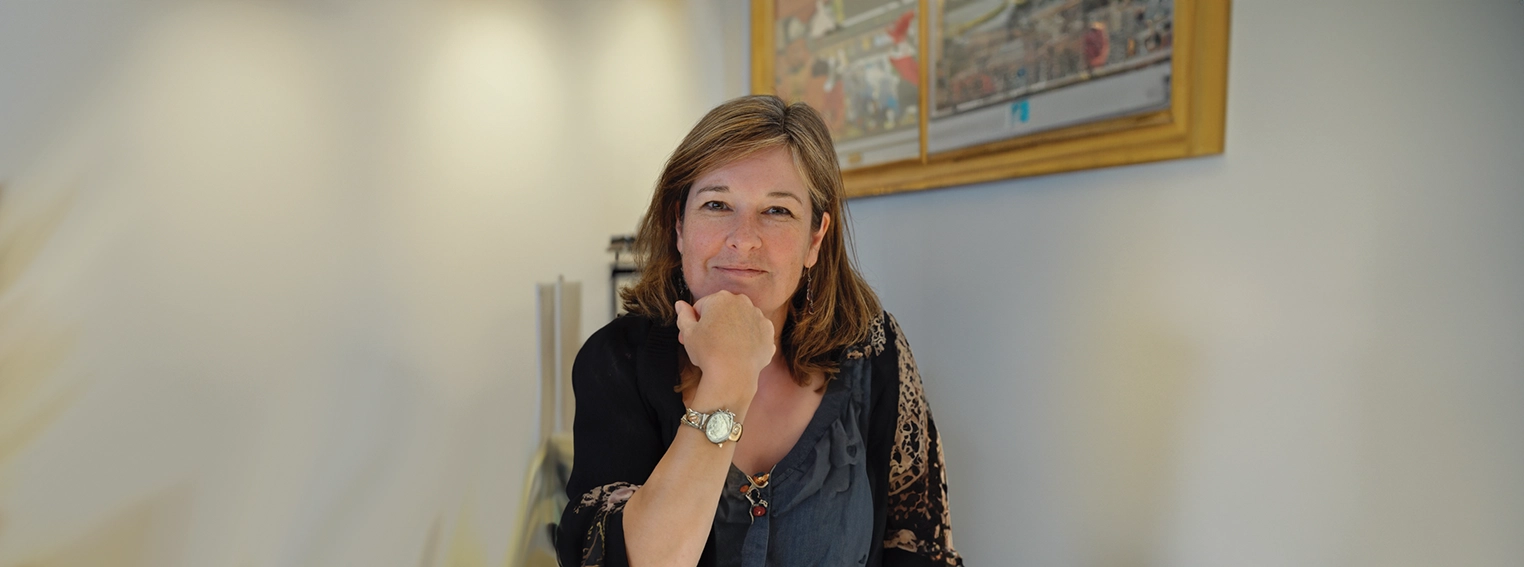From Northern England to Global Adventures in Fantasy Writing
C. B. Lyall discusses her journey from challenging gender norms to writing fantasy novels, exploring themes of inequality, identity, and cultural experiences in her debut YA novel, The Virus of Beauty.
C. B. Lyall is a remarkable author whose journey from a young girl in Northern England to a celebrated writer is nothing short of inspiring. Her life story is a testament to resilience, courage, and the relentless pursuit of dreams. Growing up in the sixties, Lyall defied gender norms and societal expectations, carving a path for herself in the male-dominated field of software development. Her adventurous spirit and passion for storytelling have taken her across the globe, enriching her perspective and deepening the cultural nuances in her work.
Lyall’s debut YA novel, “The Virus of Beauty,” is a captivating exploration of gender inequality set against a fantastical backdrop. Her ability to weave complex themes into an engaging narrative is a testament to her skill as a storyteller. The novel challenges societal norms and encourages readers to look beyond appearances, offering a fresh and thought-provoking take on beauty and power. Lyall’s work is not only entertaining but also serves as a powerful reminder of the importance of empathy and understanding in a world often obsessed with superficiality. Her writing resonates with readers of all ages, making her a significant voice in contemporary literature.
Your journey from a young girl challenging gender norms in Northern England to becoming a project manager in a male-dominated field is inspiring. How have these early experiences with gender inequality influenced the themes in your Virus of Beauty series, where you explore similar issues through a fantastical lens?
All girls and women experience gender inequality at some time in their lives, and I hope The Virus of Beauty inspires them to find constructive ways to improve the world around them. In The Virus of Beauty series wizards want to maintain control, even though times have progressed, and the best interest of this magical realm would be served by cooperation and power sharing. “We’re all in this together, if only the wizards weren’t afraid of losing their stranglehold on power,” says Ermentrude. This same argument can be applied to race, class, religion and sexuality.
In The Virus of Beauty, you introduce readers to a world where ugliness is power, and beauty is a curse. What inspired you to create such a unique and thought-provoking premise, and how does it reflect your views on societal norms regarding beauty and power?
My inspiration for the premise behind The Virus of Beauty is that our outward features don’t always reflect our inner beauty. A person should be judged by their actions, not by an airbrushed photo. Given the popularity of social media, how we look and present our lives has become our identity. This highly curated environment is often a fairy tale snapshot of lives that can promote envy and hate. On these same platforms, drug companies advertise how wonderful people’s lives will be if only they take their drug. Cosmetics promise youthful skin to older people, sophistication and attraction to younger consumers. These social media and advertising stories are fantasy, but without the genre title. I hope to remind readers to look beyond their first impressions.
Having lived and raised your family in multiple countries, including India, Belgium, and Hong Kong, how has this global perspective shaped the cultural elements in your fantasy worlds? Are there specific aspects of these cultures that you’ve woven into The Virus of Beauty series?
Although I raised my children in multiple countries, I haven’t specifically incorporated aspects of any of these cultures. Instead, I hoped to convey the sensation of feeling out of place and longing to belong. Wilf is from a mixed culture, but his surviving parent is white Anglo-Saxon, which is my own culture. Wilf is transported to a world very different from his own, and that is my acknowledgement of my family’s experience with culture shock. I think it shows how looking at ourselves through a different lens often leads to self-discovery.
Wilf Gilvary, the protagonist of The Virus of Beauty, is a teenage wizard who is reluctant to use magic. What drew you to create a character who is both powerful and hesitant to embrace that power? How do you think his journey resonates with young readers today?
The teenage years are a search for and discovery of self and the quest for self- determination. Wilf doesn’t want to follow his father into the family business and become a wizard. All his friends are non-magical. He knows no one else who can perform magic. He wants to be like his friends. He wants to fit in. The problem for Wilf is that he doesn’t realize this isn’t his world. Among witches and wizards, he won’t fit in without magic. I think readers can empathize with Wilf’s search for his own identity and the pressures placed on teenagers to conform to perceived norms, even when they know they are different.
You’re currently working on an adult historical fantasy series, No Place for Decent Women. Can you share some insights into this new project and how it differs from your work in The Virus of Beauty series? What challenges have you encountered in shifting from YA to adult historical fantasy?
The new project, No Place for Decent Women, has the general theme of gender inequality. Lady Cordelia (Delia) Fowler wants to be an independent, modern woman but it’s 1903 in Surrey, England. She is being blackmailed into a marriage with a man after her fortune, not Delia. In the first book, her friend and mentor has disappeared, and Delia is determined to find and rescue her friend and escape her own impending nuptials. I’ve discovered that writing historical fiction causes you to question setting and historical facts continuously, which tends to prolong the writing process. I lived in Hong Kong when I started to write the first Virus of Beauty book, but I’ve had no experience of living in 1903 England. Historical details must be researched and it’s difficult not to info dump all the informational and cool discoveries in the draft. I suspect there will be a lot of revision.
You’ve completed several writing courses, including a Master Fantasy/Science Fiction writer’s course and an advanced novel writing course. How have these educational experiences influenced your writing style and approach to storytelling? Do you have any advice for aspiring writers who are looking to refine their craft?
The classes I’ve attended have been inspirational and have given me the belief that I could write a novel. They encouraged the development of my writing and critiquing skills. Through the classes I met several incredibly talented writers in my area who have been supportive throughout my writing journey. I would highly recommend that any aspiring writer find local writers’ classes. I still attend classes at my local library, and my writer’s circle friends are the best.
EDITOR’S CHOICE
C. B. Lyall’s “The Virus of Beauty” is a captivating YA fantasy about a reluctant wizard confronting a magical virus, exploring themes of identity, power, and self-discovery in a richly imagined world.
C. B. Lyall’s debut novel, “The Virus of Beauty,” is a captivating young adult fantasy that immerses readers in a richly imagined world where magic and beauty intertwine in unexpected ways. Set against the vibrant backdrop of present-day Hong Kong, the story follows 15-year-old Wilf Gilvary, a reluctant wizard grappling with the weight of his heritage and the tragic loss of his father. As the narrative unfolds, readers are drawn into a gripping tale of power struggles, self-discovery, and the fight against a sinister magical virus that threatens the very fabric of the witch community.
The plot kicks off with the alarming spread of the Virus of Beauty, a magical affliction that drains witches of their powers while rendering them disturbingly beautiful. This intriguing premise sets the stage for a high-stakes adventure as Wilf, who initially wishes to distance himself from magic, finds himself at the center of a conflict that could determine the fate of both witches and wizards. The death of his father and the shattering of the Mages Crystal propel Wilf into a world of danger and intrigue, forcing him to confront his fears and embrace his identity as a wizard.



